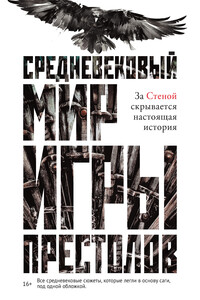1. the reflexive passive voice usually expresses a process (present, iterative or habitual according to context) or an event and encodes a potential/generic agent (explicit or implicit);
2. the periphrastic passive voice having a perfective participle usually expresses a resulting state with stative or dynamic meaning according to the context, whereas an imperfective participle expresses either a process or a complex state, represented as an open class of events.
The analysis of genuine corpora and a thorough study of the Slavic lexicon should help circumscribe the distribution of forms and the meanings encoded in such forms.
1. The structure to be + participle with — n/-t
Diachronically, it is well known that the passive past participle is based on the Indo-European adjective with *-to or *-no, which was originally attached to a root or to a nominal stem. Therefore, these forms were initially independent of the verbal system and served to indicate «a state resulting from the possession of the notion indicated by the noun or of the process expressed by the root» [Meillet 1965: 268]. Their integration into the verbal system is therefore an innovation in Indo-European languages. Concerning the earliest period of common Slavic, forms with *-to or *-no are no longer nominal derivatives but participles, by virtue of their integration in the verbal system. This is why constructions with an — n/-t participle and the auxiliary «to be» first functioned as denoting a state, their actional meaning only appearing later [Maslov 1988: 77].
It is therefore unsurprising that in Slavic languages the interrelation of constructions with — n/-t is organised around a stative reference which, depending on several factors, may or may not imply a preceding event. In fact, certain constructions are conceived as purely stative for two raisons:
1. the participles may sporadically acquire this meaning because, diachronically, they are linked to a root or a nominal theme or because they are semantically removed from the verb (in this case, Khrakovskij [1991:151] speaks of lexicalisation):
Russian
(1) Bolšaja čast ee territorii byla pokry-t-a
great part its territory.GEN was cover.PF-PPP-SG.F
lesami
forest.INSTR.PL
«The greater part of its territory was covered with forest».
Polish (quoted by [Siewirska 1988:253])
(2) Straty są spowodowane dlugotrwalą suszą
losses are cause.PF.PPP long.term.INSTR drought.INSTR
«The losses have been caused by a long term drought»;
2. the verbs are polysemic and the participles are used in their true sense (3a) or may take on psychological connotations (3b):
Bulgarian
(3a) Lodkata beše privărzana do našata ograda
boat.the be.IMPF attach.PF-PPP.SG.F beside our.the gate
«The boat was attached to our gate».
(3b) Deteto e privărzano kăm majka
child.the be-PRES attach.PF-PPP.SG.NEUTER to mother si
REFL.DAT
«The child is attached to his mother».
Only (3a) is open to discussion because, out of context, it may be analyzed either as an objective resultative, as defined by Nedjalkov and Jaxontov [Nedjalkov, Jaxontov 1988: 9][18], or as a passive form, because the perfective participle is bound to the base verb privăr-zvam/privărza «to tie/attach» and the meaning of the construction is thus linked to transitivity and passivization (4a). But this perfective participle is mostly used in a psychological sense (3b) and it is thus semantically bound to the reflexive intransitive verb privărzvam se/privărza se and to (4b):
(4a) Toj privărza lodkata do našata ograda
he attach.PF-AOR-3 SG boat.the beside our.the gate'
He attached the boat beside our gate'.
(4b) Deteto se privărza kăm mene
child.the REFL attach.PF-AOR-3SG to me.DAT
«The child is attached to me».
The literature provides many examples in which the constructions «to be» + — n/-t participles are used with a purely adjectival meaning. They then predicate a property of the entity in the same manner as an adjective:
Bulgarian
(5) Šinelite bjaxa tănki i iznoseni, kepetata
coats.the were light.PL and wom.out.PF.PPP.PL kepi.the



